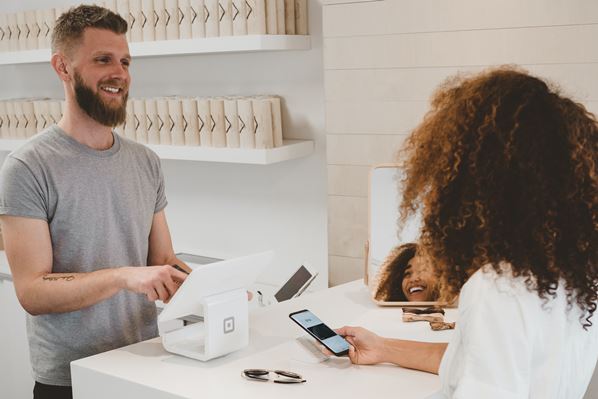
Ever wondered why shopping at your favorite store just feels right? Or how that online platform seems to suggest exactly what you need? That’s the power of psychology in customer service.
More and more businesses are turning to psychological principles to elevate their customer experiences to levels unheard of a decade ago.
This fascinating integration of psychology into our daily transactions isn’t just about better business—it’s reshaping entire industries and influencing recruitment trends globally. Let’s explore how this works behind the scenes!
Applications of Psychology in Customer Service Management
The use of psychology in customer service is transforming the industry. Businesses apply psychological principles to understand customer behavior, anticipate their needs, create personalized experiences, and build lasting relationships. As this shift becomes more prominent, there’s a knock-on effect rippling through recruitment processes.
As such, we’re seeing an uptick in psychology master’s requirements in organizations globally. Why? Because those with a deep understanding of human behavior are uniquely suited to develop strategies enhancing customer experiences. These professionals offer expert insights into what makes customers tick and how companies can tap into that knowledge for better engagement and loyalty building.
But how do they apply psychology in customer service?
1. Personalizing Customer Experiences: The Power of a Simple Greeting
When you walk into a shop, one of the first things that can set the tone is how you’re greeted. If staff recognize and greet you by name, it has an immediate impact. It establishes rapport and makes you feel appreciated as an individual, not just another customer.
Just think about how good it feels when someone remembers your name! That warm feeling is what keeps customers coming back. Essentially, personalization creates a unique bond between businesses and their customers.
It’s all about respecting and acknowledging each customer’s individuality to create meaningful interactions that’ll help in brand loyalty building. So don’t underestimate the significant role psychology plays here.
2. Anticipating Needs: Leveraging Psychological Insights for Proactive Service
Think back to the last time a messaging app suggested a birthday reminder for a close friend, based on your interactions. Felt useful, right? This is how businesses anticipate needs.
They integrate psychology and past data to predict what you might need next. It’s like having a personal advisor who knows you well! By wisely integrating customer behavior and preferences into their strategies, they can present timely offerings that seem less intrusive and more thoughtful.
This proactive approach raises the bar of service quality drastically, making customers feel understood and cared for. It’s all about staying one step ahead and adding value even before it’s sought.
3. Selling and Beyond: The Importance of After-Sales Service
Good businesses don’t just stop once the sale is made. They understand that their relationship with you extends beyond that initial transaction. That’s where after-sales service steps in.
It can come in different forms -like a follow-up email to ask about your satisfaction with a product, free returns, or repair services. The motive? To reiterate that customers’ needs are valued even after they’ve handed over their money. This makes you feel immensely valued and more likely to return.
After-sales service not only strengthens your trust in the business but also elevates your overall experience from good to great! It transforms an ordinary purchase into high-level customer care, improving customer loyalty significantly.
4. Combining Technology with Psychology for Tailored Online Experiences
Ever noticed how an online bookstore seems to know exactly what book genre you’d love next, or how a music app often nails your mood with perfect playlist suggestions? It’s a blend of technology and psychology at work. Brands analyze your past behavior and preferences to tailor your experience.
The result? A highly personalized customer experience that feels as if it was uniquely designed just for you. This personalization goes beyond convenience- it connects on an emotional level, kindles delight, and fosters loyalty.
It’s like having a personal assistant who knows exactly what you’d like next! Subtle psychological cues embedded in technology can hugely enhance customer experiences by making them feel exclusive and understood.
5. From Transactional to Personal: How Psychology Makes Buying Enjoyable
Traditionally, you buy a product or service and that’s where the interaction ends – it’s purely transactional. But today’s smart businesses take it a step further: they focus on people instead of purchases, and relationships over transactions.
They involve you in their journey and engage with your needs and preferences, creating a personal touch to each interaction. How does this elevate your experience? It makes shopping less about buying things and more about the feeling you get from it.
The blend of psychology in these interactions makes you feel more than just a consumer; it makes you feel like part of a community, an insider with special access! That transformation is what changes an average shopping experience into something truly enjoyable.
Wrapping Up
Now that we’ve uncovered how psychology in customer service management is completely reshaping the industry, you’re well-versed in its significance. With this understanding, isn’t it tempting to learn more?
Explore more on this topic, consider studies if you’re intrigued by these insights, or simply stay observant next time you interact with a business – it’ll be fascinating to see psychology at play!




